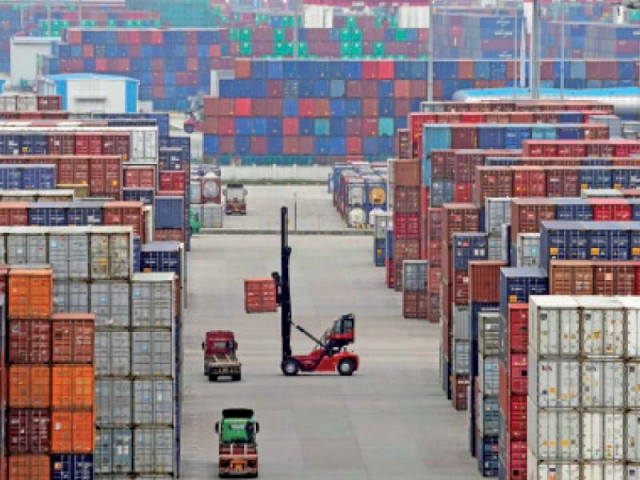Pakistan’s imports soar, exports drop in February
Trend suggests gradual return of imbalances in foreign trade

Pakistan’s imports including major kitchen items like cooking oil and sugar have continued to increase ahead the fasting month of Ramazan, while exports led by textiles sector have dropped in February.
The overall 11% growth in imports to $4.62 billion and a drop of 3% in exports to $2.07 billion in the month under review compared to the same month of the last year have suggested a gradual return of some imbalances in the foreign trade.
The strengthening rupee against the dollar, uptrend in international petroleum oil prices and reopening of the world from lockdown, including regional competitors in textile exports like India and Bangladesh, indicate the current trend of surge in imports and decrease in exports may persist going forward.
“Pakistan’s imports may remain (elevated) at $4.5-5 billion a month and exports sluggish at around $2 billion a month in the remaining four months (Mar-June) of the current fiscal year,” BMA Capital Executive Director Saad Hashmi told The Express Tribune.
The widening trade deficit by $2.5-3 billion a month may turn the balance of current account in surplus into deficit for the full current fiscal year (FY21) in the remaining months of the year. However, “the likely deficit in current account balance would be manageable with major support coming from strong inflows of workers’ remittances and outstanding growth in IT exports”, he added.
The country’s foods imports alone surged 40% to $705 million in February compared to the same month of last year. Traders built their stocks to cater to the growing demand ahead of the month of Ramazan. Sugar and cooking oil remain the two major items for which demand peaks during Ramazan, which is to start from mid-April.
Import of food items, including wheat, has remained high for the past several months to bridge shortfall and bring their prices down in the country. Meanwhile, machinery imports grew 27% to $926 million during the month ahead of likely surge in power outages during the summer season. Import of mobile phones also remained high despite several global companies starting local production in Pakistan.
Import of construction and mining machinery, however, dropped 57% despite award of construction package and the government’s untiring efforts to revive housing and construction sector to support construction and allied industries in the country.
Import of transport group rose 122% to $288 million in the month, as cars and motorcycle manufacturers and imports continued to receive higher demand with banks aggressively offer financing for automobiles.
Imports of petroleum products, which costs around one-fifth of the total imports, dropped 27% to $805 million in February. An expert, however, said that international oil and gas prices may continue to surge with reopening of global economies and increase oil import payment pressure on Pakistan in the months ahead. The international benchmark crude Brent hit 13-month high over $70 per barrel in recent days, he recalled.
Exports down
Textiles sector alone attracts around 60% of the export earnings to Pakistan. The overall exports and standalone exports of textiles both, however, decreased around 3% each in February compared to the same month of last year.
The textile sector has recorded a decrease “due to lower number of working days in the month of February. Historically, in the last six years, textile exports in February have fallen in the range of 1-10% (except for Feb 2020),” Topline Research said in a brief commentary.
Pakistan’s textile exports declined 3% and clocked-in at $1.23 billion “mainly due to 11.6% decline in volumetric sales,” it said.
Published in The Express Tribune, March 17th, 2021.
Like Business on Facebook, follow @TribuneBiz on Twitter to stay informed and join in the conversation.



















COMMENTS
Comments are moderated and generally will be posted if they are on-topic and not abusive.
For more information, please see our Comments FAQ